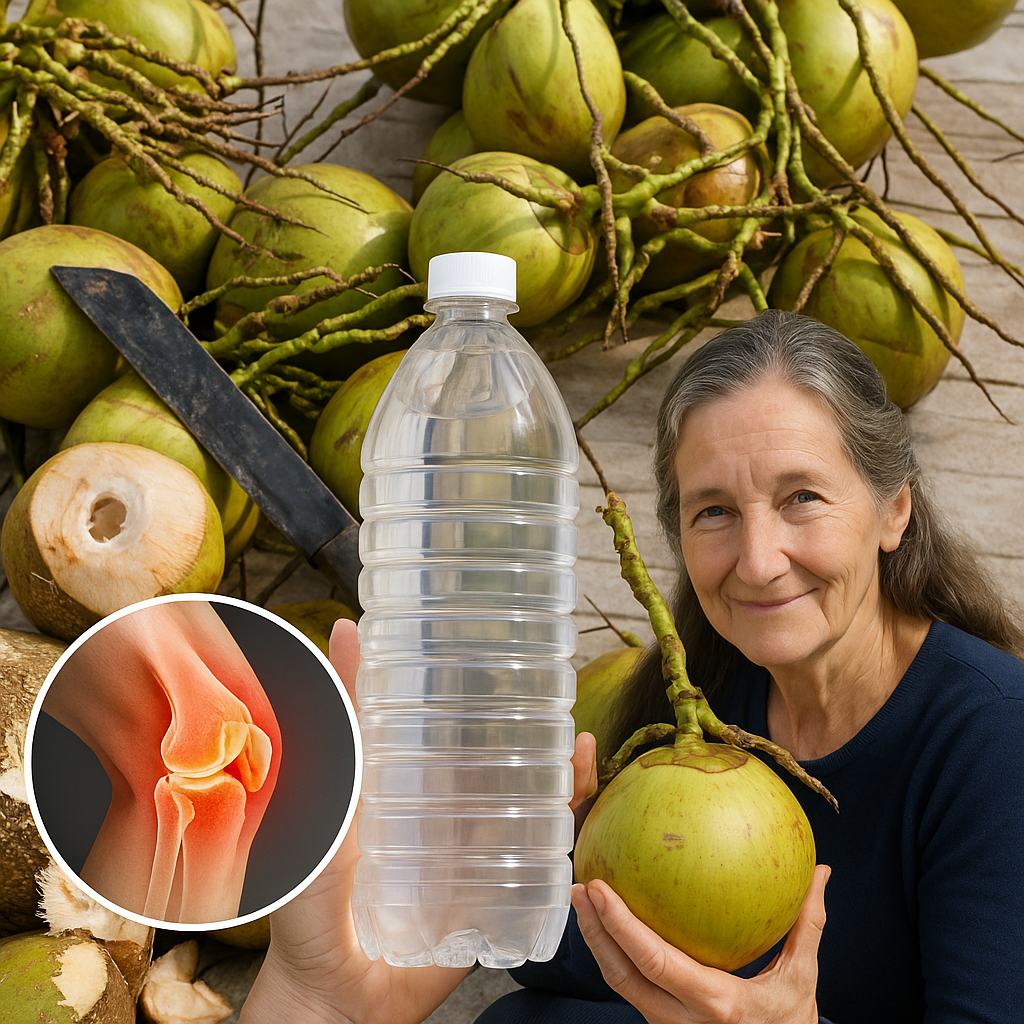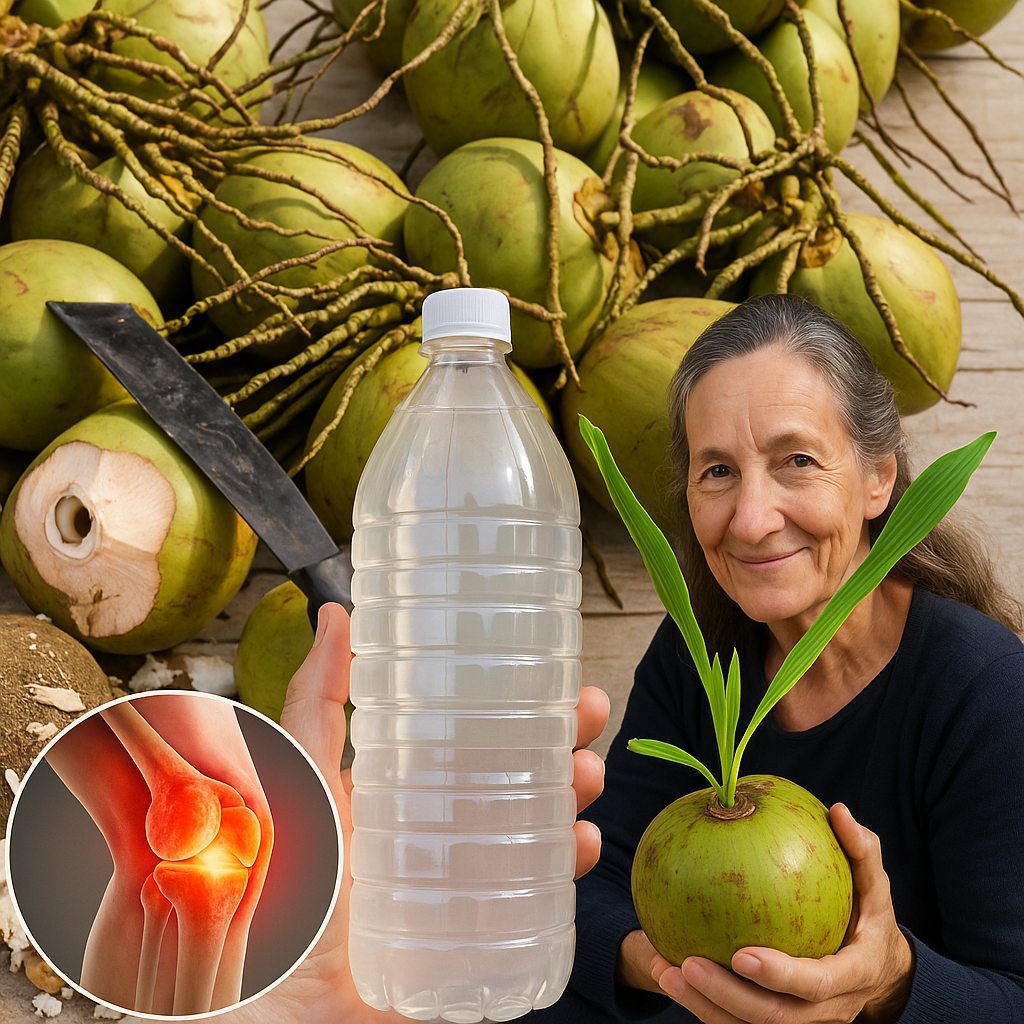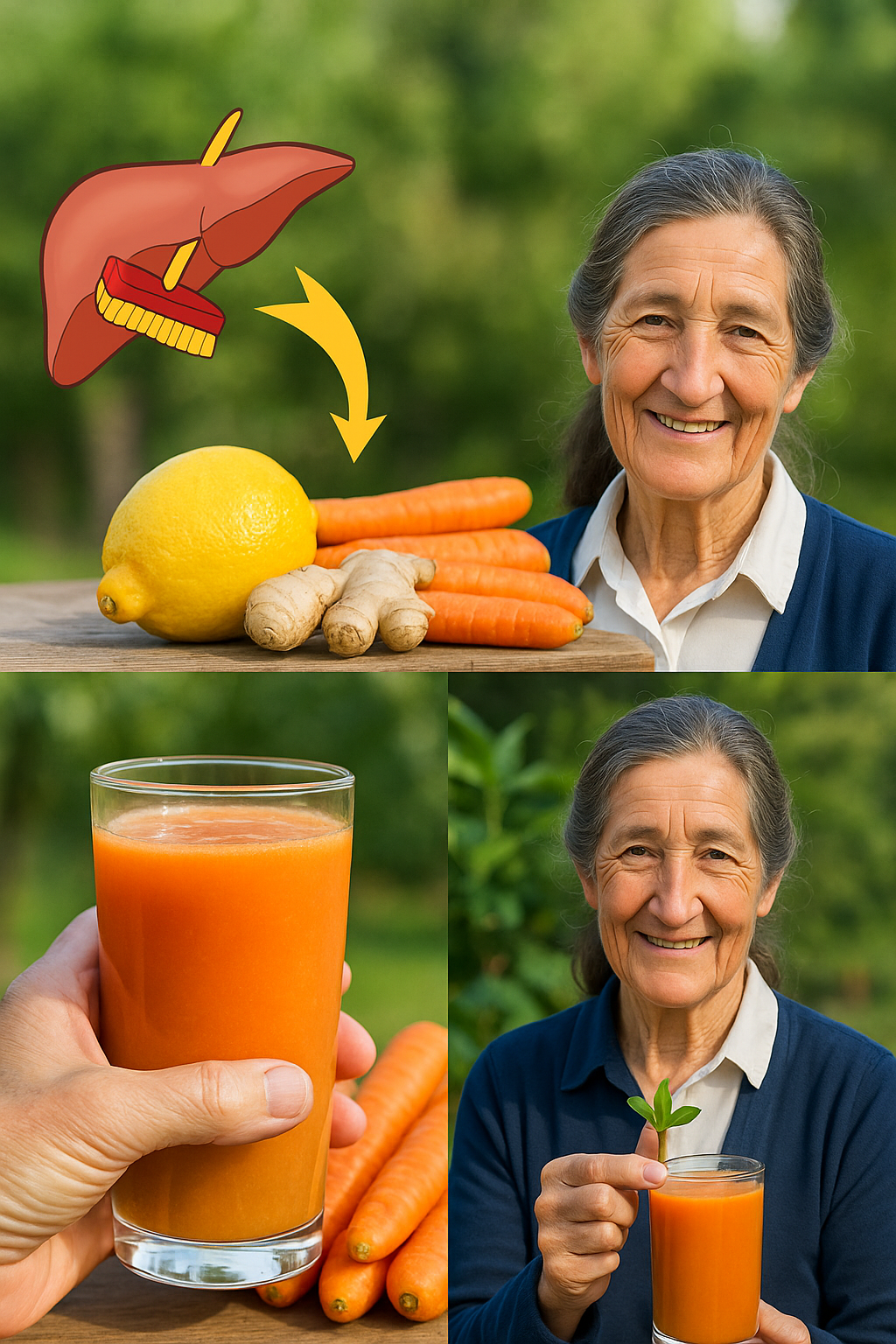🥥 Cool, crisp, and naturally sweet—coconut water has earned its place as one of the world’s most popular health drinks. Touted as “nature’s sports drink,” this clear liquid from young green coconuts is more than just a trendy hydration fix. It’s rich in electrolytes, low in fat, and packed with nutrients that can benefit your body from the inside out.
But is coconut water really the miracle drink it’s often made out to be? Let’s explore the true benefits—and the important limitations—of this tropical beverage, so you can enjoy it smartly and responsibly.

🥤 1. Coconut Water ≠ Coconut Milk
First, let’s clear up a common misconception.
- Coconut water is the clear, slightly sweet liquid found inside young green coconuts.
- Coconut milk is made from blending the grated meat of mature coconuts with water. It’s creamy, high in fat, and used in cooking—not as a hydrating drink.
If you’re watching your fat or calorie intake, stick to coconut water, not coconut milk.
⚡ 2. Packed with Natural Electrolytes
Coconut water is loaded with:
- Potassium
- Magnesium
- Calcium
- Sodium (in small amounts)
This makes it a fantastic post-workout drink for light to moderate activity. It helps replenish lost minerals, rehydrates your body, and restores energy naturally.
But here’s the catch: for high-intensity athletes or endurance sports, coconut water may not contain enough sodium to fully replace what’s lost through heavy sweating. In those cases, a purpose-built electrolyte drink may be more effective.
💊 3. Not a Cure-All Drink
Coconut water is healthy—but it’s not a miracle.
- It won’t cure kidney stones overnight (though it may help reduce risk over time).
- It can’t replace blood pressure medications or treat chronic conditions alone.
- It won’t prevent major illnesses unless it’s part of a balanced lifestyle.
Use it as a complement to a nutritious diet, not a replacement for proper medical care.
🍌 4. A Potassium Powerhouse
One cup of coconut water contains more potassium than a banana—around 600mg. That’s great for:
- Heart health
- Muscle function
- Balancing blood pressure
But if you have kidney issues or are on a low-potassium diet, be careful. Too much potassium can lead to hyperkalemia, a serious condition that affects heart rhythm.
🚫 5. Watch Out for Added Sugars
Not all coconut waters are created equal.
- Some brands add sugars, flavorings, and preservatives that turn a healthy drink into a sugary beverage.
- Always read the label. Look for 100% pure coconut water with no added ingredients.
When in doubt, go fresh—or choose minimally processed options from trusted brands.
⚠️ 6. Allergies: Rare, But Possible
While coconut allergies are uncommon, those with tree nut allergies may want to be cautious, even though coconuts are technically fruits.
If you’re new to coconut water and have a history of allergies, consult your doctor before adding it to your diet.
💩 7. May Act as a Natural Laxative
Coconut water has a mild laxative effect, especially when consumed in large amounts.
- If you’re new to it, start with small servings—about half a cup—to see how your digestive system reacts.
- Too much at once can lead to loose stools or stomach discomfort.
🍻 8. Natural Hangover Helper
After a night of drinking, your body is dehydrated and depleted.
Enter coconut water—its natural electrolytes help rehydrate you and restore essential minerals. Sip it the morning after to ease symptoms of:
- Headache
- Fatigue
- Dry mouth or dizziness
🥥 9. Fresh is Best
Whenever possible, choose fresh coconut water straight from a young green coconut.
- It’s more flavorful
- It’s nutrient-rich
- It’s free from pasteurization, additives, and packaging
Packaged versions, even from reputable brands, may be heat-treated or contain less nutritional value.
❤️ 10. May Help Regulate Blood Pressure
Thanks to its high potassium content, coconut water may help balance sodium levels and support heart health.
However, if you’re already on blood pressure medications, drinking too much coconut water could amplify their effects. Always speak with your healthcare provider if you’re unsure.
💧 11. Not a Water Replacement
Coconut water is hydrating—but it has calories and natural sugars. Unlike regular water, it’s not ideal for sipping all day.
Use it:
- After workouts
- In the morning for a hydration boost
- As a snack or pick-me-up
But don’t substitute it for plain, zero-calorie water throughout the day.
🌱 12. Consider the Environmental and Ethical Impact
The growing demand for coconut water is straining ecosystems and agricultural systems in some regions. Many farmers receive low wages, and large-scale production may lead to deforestation or overharvesting.
Whenever possible:
- Choose brands that support sustainable farming
- Look for fair trade-certified coconut water
- Support smaller, ethical producers

✅ Summary: The Smart Way to Enjoy Coconut Water
| Pros | Cons |
|---|---|
| Natural source of electrolytes | May lack enough sodium for heavy workouts |
| Helps with hydration and energy | Can cause digestive upset in large amounts |
| High in potassium | Not suitable for people with kidney issues |
| May support heart health | Contains calories and sugars—not ideal all day |
| Good for light detox and hangovers | Packaged versions may have additives |
🥥 Final Thought: Enjoy Coconut Water Responsibly
Coconut water is a delicious and functional beverage that can be part of a healthy lifestyle—but only when used wisely.
Drink it to refresh. Use it after exercise. Reach for it during warm weather or hangovers. Just don’t overdo it or fall for overhyped claims.
Stay hydrated. Stay informed. Sip smart.


